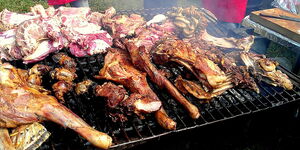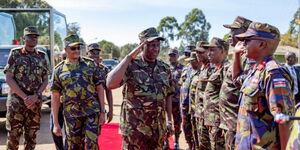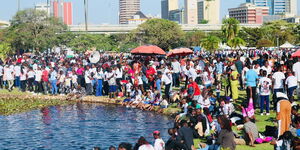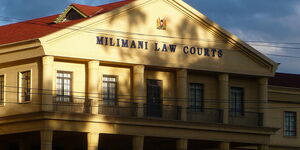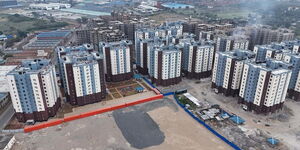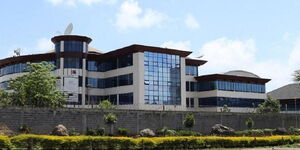Kenya Navy soldiers allegedly unleashed wrath on Mombasa residents after President Uhuru Kenyatta visited the area to mark Mashujaa Day celebrations on Sunday, October 20.
According to The Standard on Monday, October 21, residents claimed that young KDF soldiers manhandled them, forcing them into undertaking degrading acts.
The soldiers allegedly forced residents to sit in mud puddles and one Mwangole Chikore claimed that he was forced to swim inside filthy sewage for about 10 minutes.
“They wrestled me to the ground and later forced me to swim inside sewage. I tried to run but they hit me with the butt of a gun. They later released me and asked me to sprint off,” Chikore painfully narrated to The Standard.
The salesman stated that he was accosted by the soldiers who said that he 'looked suspicious'.
Another resident who spoke to The Standard, Salim Matano, was asked to drink filthy water from a sewer, after being ordered to do 10 press-ups inside it. He managed to do five and collapsed in the sewer out of exhaustion.
According to Matano, the naval soldiers then beat him and left him for dead.
"This is needless terror. Anyway, I blame myself for trying to attend the Mashujaa celebrations. If I had stayed at home, I could not have been forced to drink from a sewer,"
Moses Juma from Jamvi la Wageni area in the Coast narrated how the security forces ashamed him in front of his wife while they were crossing the Indian Ocean to attend Kenyatta's event.
Jumwa was ordered to strip as the soldiers who were on patrol descended heavily on him as his girlfriend watched helplessly and in tears.
“They rained slaps on me while hitting me with gun butts. They later forced me and my girlfriend to sit on a sewer,” a petrified Juma told The Standard.
Many residents in various areas, including Senti Kumi, Majengo Mapya and Dudus areas of Likoni remained indoors.
Security was tight in the coast, with soldiers barricading all empty open spaces within Mombasa Island, and kept key areas such as Mombasa's Old Town under lock and key.
This, in part, was to ensure that planned demonstrations by a section of Mombasa residents aggrieved by the government's controversial directive to reroute all cargo via the SGR did not take place.

